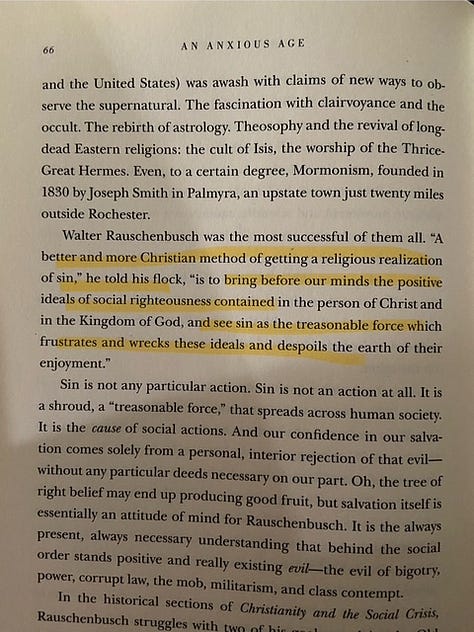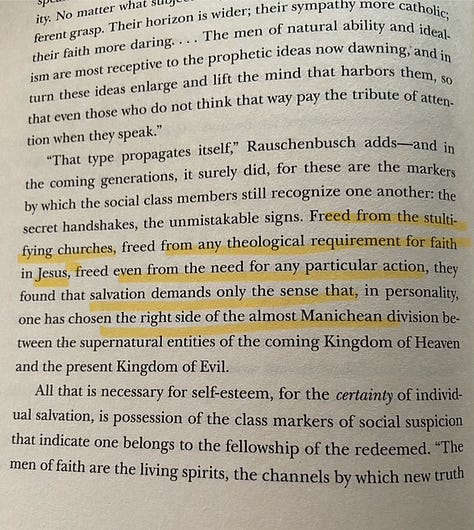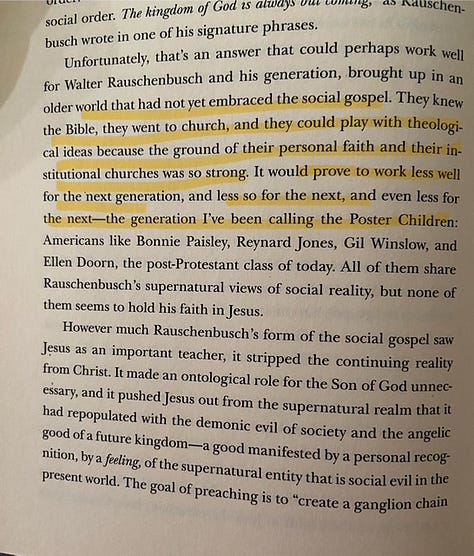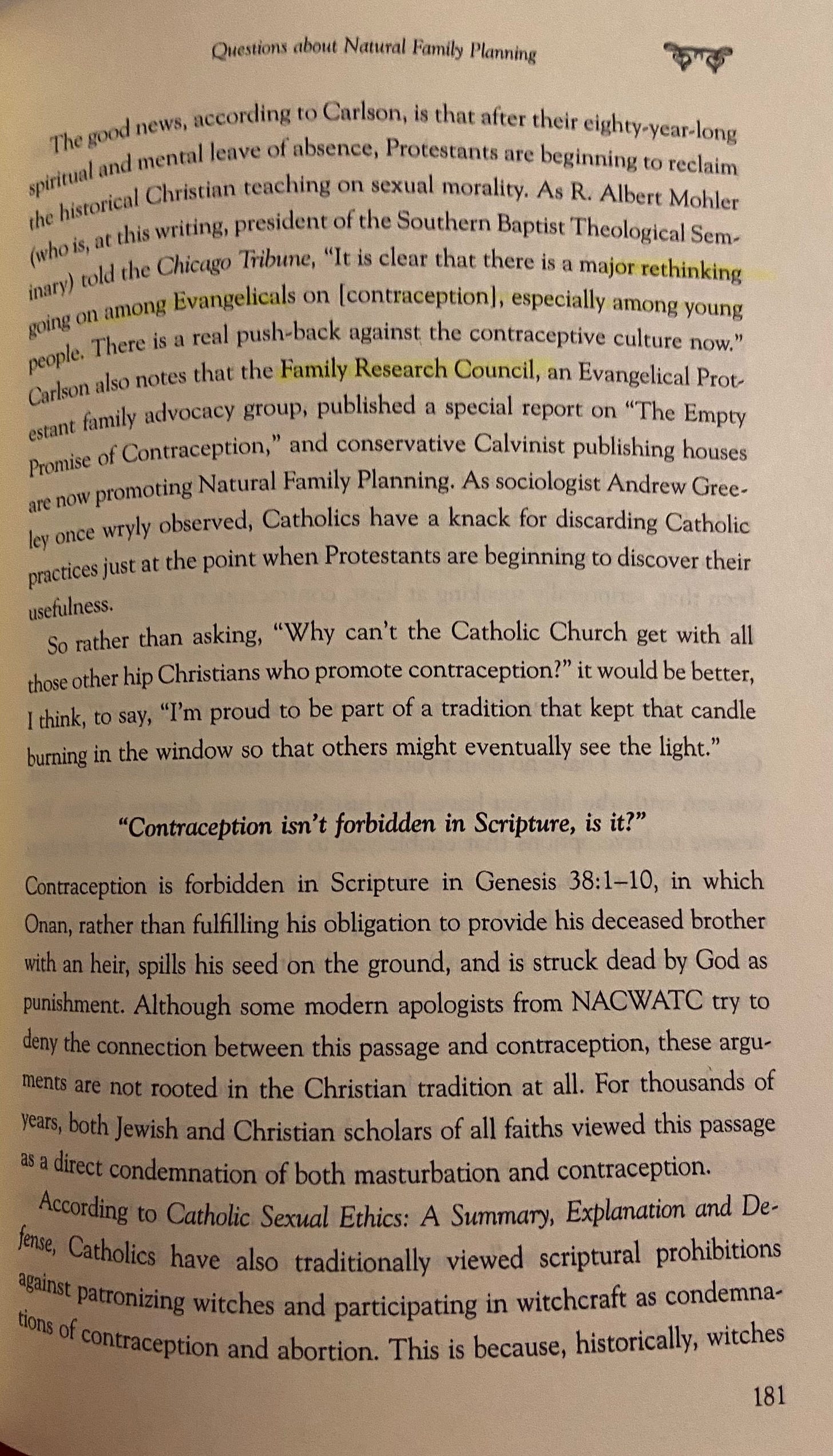Ask a Knight: Will 'Take Me Back to Yesterday' Movement Succeed?
Analyzing the "Tell Me 'Bout the Good Old Days" lament

Does anyone remember a song called “Tell Me ‘Bout the Good Old Days’ (The Judds, 1986)?
The singer laments the new culture & society that messed up the proper order of things. The listener is meant to recall that their grandparents grew up in a better time, a simpler time, a more genuine time.
People still say the same thing today, in 2025, so I guess we’ve failed to achieve what The Judd’s were asking. But why? For lack of desire or lack of resolve? Not quite.
First, go and play the song, then I will review the lyrics below, line by line —
As mentioned in my previous post, “The Reformation Destroyed Christendom,” if you go on social media and ask “When did the Good Old Days start becoming the Bad New Days?” (asking for either a year or an event that caused it), you will get a slew of theories, some purely political, some purely social/philosophical, some purely religious, but overall an overlap of all three:
The Enlightenment (1715) and some of the secular philosophies born from it
The invention of Marxism (1848: The Communist Manifesto)
The invention of Theory of Evolution, which (ostensibly) debunked the Creation Story in Genesis and thus began the “death” of religion (1859: On the Origen of Species by Darwin)
The invention of Feminism (1848 at the Seneca Falls Convention)
WWI, WWII or various other wars
The introduction of drugs
The introduction of pornographic magazines and videos
When the Federal Reserve was created (1913)
When we went off the Gold Standard (1933)
Something to do with mechanization of labor
Something to do with Compensation vs Productivity ratio (~1972)
The Killing of Kennedy
The CIA takeover
The Great Society (1964 - 1968) welfare programs which kicked fathers out of homes
When the Supreme Court removed the 10 Commandments from public schools (1980?)
Whenever immigration went out of control
The introduction of television into every home (~1950)
The introduction of teachers unions in public schools
The legalization of aborticide (1973) — (I don’t say ‘abortion’ I say ‘aborticide’)
NOTE - I do not necessarily endorse any of these theories.
A few of my sources (only to show examples, not that I endorse any of these ideas)
https://x.com/itsaboutthebaag/status/1873409339513516529
https://x.com/DEI4WhiteGuys/status/1915113973848158451
and
And so on.
Other commenters won’t specify exactly when or how, but will conclude that the Good Old Days was around 1950 when the average family was a factory-working father + a stay-at-home mom, and about 2 - 5 kids all living in a decent house with a picket fence on 1 income, 1 car and 1 TV, and going to 1 Protestant church on Sunday. Essentially, whatever Norman Rockwell painted for the Saturday Evening Post.
Thus, this opening line -
Grandpa
Tell me 'bout the good ol' days
Sometimes it feels like
This world's gone crazy
“Gone crazy” means that:
crime has risen.
People aren’t as friendly or courteous.
Everything is hustle & bustle, no personal relationships.
Husband & Wife argue, have affairs, and eventually split up (and for The Judd family, this was tragically personal).
“Gone crazy” also means that the average family is either a single working Mom + kids or Mom + Dad both working and not spending enough time with kids, who are raised by the TV & public school instead. Inflation & the middle class squeeze has left them demoralized and rudderless. The kids don’t go to church anymore and don’t really have prospects for moving out and getting married and having kids.
What does Wynonna Judd ask?
Grandpa
Take me back to yesterday
When the line between right and wrong
Didn't seem so hazy
She describes a God-fearing nation, a church-going culture, one that has a clear idea of morality that is objective, not relative.
Pause for a moment and consider if that can actually happen.
In today’s politically active Protestant Evangelical circles, the phrase “Revival or Bust” is their answer. That is, get everyone back to church (Protestant church, of course), back to God, and all these new problems will be solved or solvable.
But will that be sufficient?
No. Because history repeats. If 1950 existed, and we went back to it, then 1960 will also happen again.
Unless we actually fix the problem that existed in 1950. What was, then, the problem of 1950?
How did that seemingly rightly-ordered society, which had the same family values & structure that had been the norm for ~2000 years, suddenly be unable to pass on these values to their children?
Perhaps this next line gives us a clue:
[Chorus]
Did lovers really fall in love to stay
And stand beside each other come what may?
As the family goes, so goes the nation.
We know that the divorce rate began going up in post-WWII America. From 1960 to 1980, the rate doubled. By 1969, divorce became so prevalent that politicians simply removed their foot from the brakes. Thus Governor Ronald Reagan, himself having been victim of a bad divorce, signed a bill to allow “No Fault Divorce.” Because a “clean” divorce is better than a messy one, I guess.
Where was the average American church pastor while all this was going on? Those of strong religious conviction were instrumental in the founding, building and restoring of America — from the first settlers (the “Pilgrims” / “Puritans”), to the “Black-Robed Regiment” who were active before and during the American Revolution, to the prominent pastors of the Abolitionist movement (such as Quakers Benjamin Lay, John Woolman, and Anthony Benezet) to those leaders who overcame a lot of his own skepticism of religion (Abraham Lincoln) to win the Civil War and free the slaves, to Civil Rights Movement of the 1960s, led by Rev. Martin Luther King, Jr (an American Baptist minister).
With that heritage of strong, outspoken pastoral leadership through all of America’s major social and political upheavals, one would think the pattern would continue for the post-1950 assault on the traditional family. But it didn’t.
Why not?
In fact, it went the opposite. While there were a few hold-outs, a significant, influential chunk of Protestant Churches began to either explicitly allow for or implicitly tolerate the following sins:
Contraception — in 1930, at the Lambeth Conference, the Anglican Church passed Resolution 15 which allowed for “other methods” contraception in marriage. At that time, it thus allowed for condoms, and later it allowed for birth control pills, IUDs, and surgeries. Most Protestant churches followed suit.
Using birth control pill not merely to control family size, which Natural Family Planning (NFP) also allows, but to avoid expecting the husband to lovingly abstain from sex for 3 - 7 days during menstruations.
Other types of sexual sins & lack of chastity within marriage, such as pornography use, and various other fetishes and kinks.
Tolerance of pre-marital sexual activity in our young adults, as if the expectation of abstinence is a pipe-dream. “Kids are gonna do what they do. It’s best to get the girl on birth control pills and STD prevention ahead of time.”
Quick & easy forgiveness of extra-marital affairs by the husband.
Pastors devoting much more time & energy on their ministry than on their marriage.
Divorce & re-marry as simply an unfortunate happenstance, without necessarily placing judgement against the husband. Eventually, divorce could occur without the pastor losing his strong reputation from his flock, and sometimes with no damage to his leadership position in his church.
And, eventually, aborticide.
Aside - On the subject of infidelity & divorce among prominent Protestant pastors, and whether or not the flock tolerated it, and how that changed over time, and how much that contributed to the overall tolerance of divorce, that issue is complicated. Many pastors fell from grace, as listed in this article, Legendary Pastors Who Fell From Grace. Today, divorce is now seemingly a nothing-burger. The elders & congregations often vote for their pastors to remain, because they love his style of preaching, and cognitively separate his personal from his professional conduct. This topic deserves to be researched and included in a separate article. I will continue to research and compile notes & data to build the timeline of causality on this topic. I have to read Allan Carlson, writer at Touchstone, for a better timeline of Protestant opposition to contraception from the Reformation into the modern century.
What I will say right now is this — there is something deeply missing in the Protestant version of chastity within marriage, and it has a cumulative effect on the overall ability of pastors to effectively preach against divorce in society. I can’t yet narrow it down to the exact cause for this effect, but I cannot see any other reasonable explanation for the cultural decline of the centuries-old, universal Christian virtue of chastity & fidelity in marriage, and PERSERVERANCE rather than acquiescence. One good trend I noticed was that some Protestants have begun to re-think their position on contraception. See this article from an Anglican reverend. It’s a small step, but in the right direction.
See also this page from the book “Holy Sex” by Dr. Gregory Popcak,
On this page, it explains that Albert Mohler, who is/was president of the Southern Baptist Theological Seminary, now writes, “It is clear that there is a major rethinking going on among Evangelicals on [contraception].”
The book also points to an special report from the Family Research Council on “The Empty Promise of Contraception.” So perhaps there is some progress among the think-tanks, but I have not seen it yet materialize, with any plan of attack, in the real world. Prove me wrong.
I want to finish analyzing the remaining lines of the song. The song continues to speak of the decline of the other Christian virtues, all of which you’ll still hear preached about in any sermon on any given Sunday in America.
The virtue of INTEGRITY-
Was a promise really somethin' people kept?
Not just somethin' they would say
The virtue of FAITH & OBEDIENCE-
Did families really bow their heads to pray?
As Father Patrick Peyton says, “The family that prays together stays together.” Is that still true? It may depend on how authentic that prayer is, and what sacrifices are offered up to supplement that prayer.
The virtue of FORTITUDE & PERSERVERANCE, especially when family life gets tough-
Did daddies really never go away?
That last line strikes at the heart of the matter, for there is no previous generation, that I can recall, where it can be said that fathers began to abandon their children. Even in amoral pagan societies, fathers placed great value in leaving a generational legacy.
Back to the question — will American Christian pastors ever unite to confront the divorce & contraception crisis?
And why do I ask this? Because, yes, right now there is a strong and growing Conservative Christian Evangelical “Take Me Back to Yesterday” activist movement, but they are only focusing on things like allowing prayer & Ten Commandments in schools, and maybe sort-of banning aborticide, and other nibbling around the edges. This movement might succeed in getting slightly back to 1980, or 1970, or maybe even 1950, but so what? 1960 will happen again.
Let’s look at one good example —
Focus on the Family — this is a very typical Conservative Christian group, and they did, once, address the birth control pill issue, in an article from 2010. It demonstrates why their “push back” is not strong enough, and will fail.
https://www.focusonthefamily.com/marriage/the-pill-did-it-cause-the-sexual-revolution/
This article speaks of some of the downsides of “The Pill” but he only identifies it as one of many of the causes of the Sexual Revolution. Examine some of the ways this author, Glenn T. Stanton, couches it,
There are compelling reasons why the Pill did not start the sexual revolution. First, there is no single event – not the Pill, the advent of pornography, taking prayer out of schools, etc. – that started the sexual revolution.
and
A strong case can be made that cultural affluence, materialism and increasing secularism over both the 1910-20s and 1960s-to-present fueled the loosening of our sexual values.
When you cannot specifically identify the enemy or the target, you will never hit it, no matter how many shots you take. How does one target “cultural affluence?” How does one repel “increasing secularism?” What are those things, exactly, that we can address them at an individual level?
Furthermore, the author refrains from listing contraception as a moral issue. He definitely steers clear of defining it as a sin, which is how the Catholic Church classifies contraception.
Perhaps the explanation for this reticence among Christian pastors to truly confront the sin of contraception, or any personal sin for that matter, is explained in another book, “An Anxious Age.” In this book, the author, Joseph Bottum, details how Protestantism, over time & influences of modernity, from desire to stay relevant, inevitably falls into cultural activism at the expense of personal perfection of virtue. Bottum shows the lasting influence of a man named Walter Rauschenbusch (1861 - 1918) who promoted that pastors should teach Christian flocks to be more concerned about “social righteousness” rather than address personal sin and we should only focus on sin as a “treasonous force” that causes broader cultural failures.
Bottum makes the case that Protestants broadly embraced this “social gospel” but, initially, still were able to retain their personal faith and detachment from sin, because “their institutional churches were so strong.” These Protestants were able to have both interior rejection of evil and exert exterior social pressure. But after a few generations, only the exterior social pressure remained strong, and even that became mostly for show, a “virtue signal” that we see today. It is perhaps this era we must go back to, or further back, if possible.
Protestant leaders, in my opinion, have not yet performed the kind of self-reflection necessary to accomplish what I ask of them.
Catholic leaders, too, must be introspective about this. We must admit that Catholic culture began to copy what we saw, and Catholic clergy allowed for it, out of so-called “ecumenism” (a focus on Christian cooperation and shared values). Catholic clergy must address this too.
The problem is only worse in the popular non-denominational Christians of today who preach “prosperity gospel” or something adjacent to it, or those who preach “Hippie Jesus” or “He Gets Us” or any church that doesn’t ask you for anything more than to say “The Sinners Prayer,” tithe a little and open your Bible to 1 Corinthians and 1 John (the “love-centric” books).
The topic is complex, hence a full book to cover it, but here is an illustrative 3-page excerpt of one of the reasons for or causes of this “Protestant Drift,”



This drift is important to identify and address, because “Take Me Back to Yesterday” needs to account for it before moving forward. Without addressing the drift, we might see some achievements in this movement, which is essentially “Fix the Culture so as to Not Harm My Family, but Don’t Fix My Family.” But we will not reach a true victory. We might see Family Research Council and Focus on the Family and other groups score some victories against soft targets, such as cancelling “Drag Queen Story Hour” in schools, getting the male athletes out of the girls locker rooms, or banning trans surgeries for minors.
But without addressing personal sin, the sins of the flesh, we will have no weaponry or authority to combat the spiritual warfare that is going on in our classrooms or our boardrooms. Husbands will not have the fortitude and moral clarity to lead his family members out of occult practices and lustful, unchaste quasi-marriages.
As the family goes, so goes the nation.
As the father goes, so goes the family.
Why did lead singer Wynonna ask Grandpa? Because Daddy wasn’t around, and even if he was, he didn’t have a good answer.
Without a strong father, young men get into gangs and drugs and crime and fornication and lust rather than love. Thus ends the Good Old Days.
“Take Me Back to Yesterday” is a movement trying to fix the nation without fixing the father. To the degree they want to fix the father, they only want to motivate him into a more effective political activist, removing his slothful, “Sports Bro” tendencies and getting him to protest at the school board meetings. Okay, that’s progress, but that’s not the enemy’s flag we need to capture. The enemy went for the patriarch of the family, and captured him. The counter-movement currently is not aiming for him.
It won’t work. Getting back to 1950 is not enough. As the Professor says in The Lion, the Witch, and the Wardrobe, “You won't get into Narnia again by that route.”
That’s why I created Catholic Knighthood.
That’s what I’ll be addressing with every arrow in my quiver.
In everything I’m doing here, from organizing small men’s groups to defending the authentic Catholic faith to identifying the cracks in the foundations of Protestantism, and everything in between, is designed with the goal of restoring traditional fatherhood in the traditional marriage. That’s the only way back to the Good Old Days.
Non nobis.
Related resources:
https://catholictalkshow.com/the-12-tricks-of-the-antichrist-to-destroy-religion/
This episode of The Catholic Talk Show features the prophetic warnings of Venerable Fulton Sheen, who gave this sermon in 1947, which is perfect example to show that going back to 1950 will not suffice. We knew about the problems in Christian culture long before then.






More “Take Me Back to Yesterday” talk without fixing anything.
https://x.com/JoelWBerry/status/1920537379170877885
This nostalgic article by Catholic Adventurer nicely overlaps with my "Take Me Back to Yesterday" theme -
https://substack.com/home/post/p-159903964